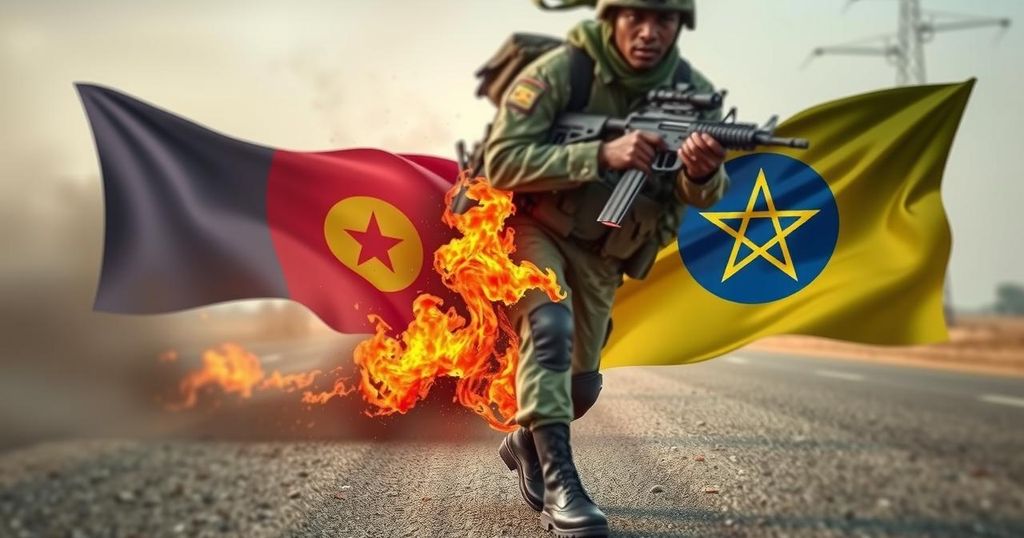Somalia’s foreign ministry accuses Ethiopian forces of a lethal attack on its troops in Doolow, just after signing a peace agreement aimed at resolving ongoing tensions. The conflict arose from federal forces engaging with local Jubaland forces, leading to an intervention by Ethiopian troops. This incident threatens the stability achieved through recent diplomacy between the two nations, particularly following a controversial deal involving Somaliland.
Somalia has accused Ethiopian forces of launching a deadly attack against its military in the Doolow region, mere days after both nations signed a peace accord aimed at easing prolonged tensions. According to the Somali foreign ministry, the Ethiopian troops targeted Somali positions at an airstrip during the morning hours, resulting in casualties, although specific numbers were not disclosed. Meanwhile, officials from Jubaland state suggested the Ethiopian intervention was to protect local politicians from Somali federal military actions, which have recently been marked by disputes over territorial control.
The incident intensified when Somali federal forces were reportedly instructed to fire on an aircraft carrying Jubaland officials, prompting a skirmish. Jubaland security minister Yusuf Hussein Osman stated that the ensuing firefight led to injuries among federal troops and a subsequent overpowering of pro-Somali forces by Jubaland supporters, with Ethiopian troops intervening on behalf of the latter.
Somalia functions as a federation comprising semi-autonomous entities that have frequently contended with the central government in Mogadishu. This clash poses a significant threat to a recent agreement brokered by Turkey, which was intended to resolve disputes between Somalia and Ethiopia that arose earlier this year over Ethiopia’s leasing of a coastal area from Somaliland, an action which Somalia deemed a violation of its sovereignty.
The recently brokered accord between Ethiopian Prime Minister Abiy Ahmed and Somali President Hassan Sheikh Mohamud in Ankara was anticipated to facilitate Ethiopia’s maritime access via Somalia. However, the Somali foreign ministry condemned the Doolow confrontation, categorizing it as an affront to the Ankara Declaration and reaffirming their commitment to defending their territorial integrity.
The ongoing tensions between Somalia and Ethiopia stem from complex geopolitical dynamics within the Horn of Africa. Ethiopia’s agreement with Somaliland, a self-declared independent region of Somalia, to lease coastal territory for economic and military purposes ignited accusations of sovereignty infringements by Somalia. The recent signing of a peace deal between the two countries, aimed at addressing historical grievances, was intended to stabilize the region. Nevertheless, internal disputes within Somalia, particularly between the federal government and its semi-autonomous regions, complicate these efforts and contribute to instability.
In summary, the recent clash between Somali and Ethiopian forces underscores the fragility of regional agreements in the face of longstanding territorial disputes and internal divisions within Somalia. It further complicates diplomatic measures aimed at rectifying historical tensions and could threaten future cooperative agreements between the two nations. Somalia’s strong denouncement of the actions taken by Ethiopia highlights the precarious nature of sovereignty and governance within the region.
Original Source: thedefensepost.com






